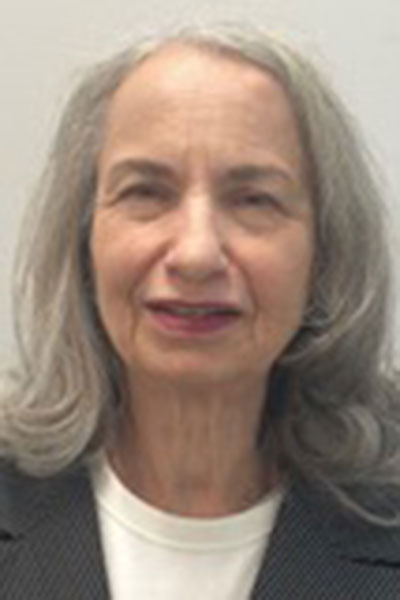An estimated 1.3 billion people, or 16% of the world’s population, live with a disability, according to the World Health Organization. And, as people worldwide are living longer, many of us will likely experience some form of disability as we age.

This is one of the key points Joan Westreich, MSW, LCSW-R, Social Work Coordinator of the Early Arthritis Initiative at the Hospital for Special Surgery, will address during the session Hidden in Plain Sight: The Impact of Ableism on Persons with Rheumatic and Musculoskeletal Diseases on Monday, Nov. 18, from 10:30–11:30 a.m. ET in Room 102AB of the Walter E. Washington Convention Center.
Ms. Westreich works with patients with inflammatory arthritis (IA) individually and in support and education groups. She is also engaged in research on the impact of IA in employment. During this session, she will be joined by Cheryl Crow, OT, the creator of the vlog Arthritis Life. The session will be available on demand within 48 hours for registered ACR Convergence 2024 participants.
Through the adoption of less ableist attitudes and the promotion of more inclusive views and practices, clinicians can help reduce barriers and disparities in the care patients are given, Ms. Westreich said.
Ableism is one of the most prevalent forms of prejudice and discrimination patients face, she continued, noting the importance of realizing that ableism is prevalent in society, within professions, and on an individual level.
“By exploring ableism and having some cultural humility about what it’s like to be a person with disabilities, we can expand our ability to provide better health care to our patients,” Ms. Westreich said.
Although it has been more than three decades since the passage of the landmark 1990 Americans with Disabilities Act in the United States, many patients living with disabilities still report feeling disrespected, unheard, and underserved, and that they receive inadequate accommodations in their clinical encounters. Evidence supports this, Ms. Westreich said.
“In terms of accessibility, there’s a need for exam tables with adjustable heights, scales that can weigh everyone, and accommodations for people with impaired vision, speech, or hearing,” she said. “This is especially relevant to the rheumatic and musculoskeletal disease (RMD) patients we work with whose invisible symptoms, such as chronic fatigue and pain, contribute to their disabilities.”
Additionally, there are some societal norms that contribute to prejudicial and biased treatment of patients with rheumatic disease; however, clinicians have an ethical obligation to practice professionally and in an informed way, Ms. Westreich said.
“The way we understand the lived experiences of our patients is to ask and spend time with them and not presume that we know what it’s like to be someone who uses a wheelchair,” she said. “If we don’t feel we have sufficient knowledge, then we need to figure out how to get the information, the training, the support, and the supervision to make sure that we are providing appropriate and fair practice.”
On an individual level, Ms. Westreich said attendees should ask themselves, regardless of how difficult it may be: What can I do? Do I feel uncomfortable treating certain patients? Do I give them short shrift or refer them out to other people? How can I find personal and professional value in exploring those uncomfortable feelings?
The condition of being human is to possess certain explicit or implicit biases, she said. Yet healthcare providers have an ethical responsibility to examine these biases, such as being reluctant or uncomfortable when treating persons with certain disabilities, which may make it difficult for the provider to understand the lived experiences of patients and their needs.
“From the perspective of social workers and psychotherapists, I would hope that attendees might consider thinking about what steps can we take to make our institutions or practices more sensitive, more accommodating, and more accessible to the needs of our patients with disabilities,” Ms. Westreich said.

Registered ACR Convergence 2024 Participants:
Watch the Replay
Select ACR Convergence 2024 scientific sessions are available to registered participants for on-demand viewing through October 10, 2025. Log in to the meeting website to continue your ACR Convergence experience.
